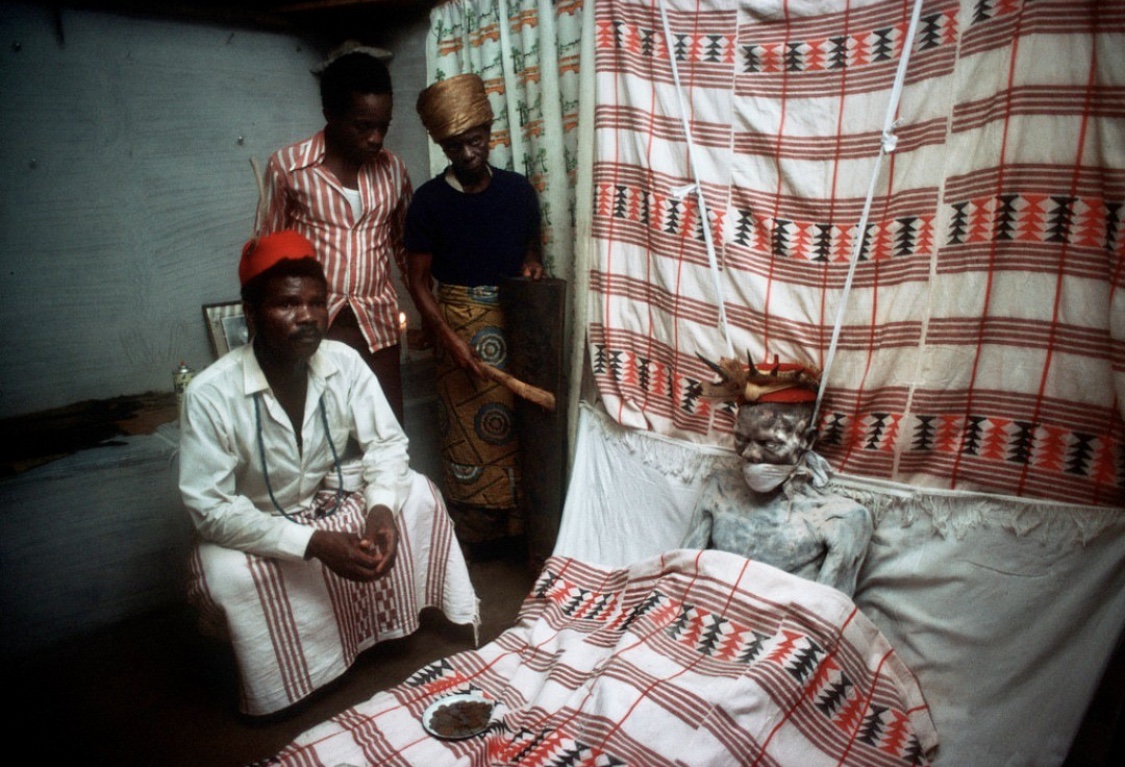
The 1978 photograph by Bruno Barbey captures the late Obi Ijeh, the clan chief of Idumuoghu, adorned in chalk, a significant cultural symbol in Igbo society. Taken in Bendel State, Nigeria (now part of Delta State), the image reflects the deeply rooted traditions and rituals surrounding death and leadership among the Igbo people.
The Symbolism of Chalk in Igbo Culture
In Igbo cosmology, chalk (nzu) holds profound symbolic meaning. It represents purity, peace, and the connection to the spiritual realm. When used during burial ceremonies, it signifies the deceased’s transition to the ancestral world and their purification for acceptance among the ancestors. Chiefs, such as Obi Ijeh, hold a revered position, and their burials often include elaborate rites reflecting their status and contributions to the community.
The Role of Obi in Igbo Communities
The title of Obi is both spiritual and administrative, serving as the central figure in the governance and cultural life of a community. As the clan chief of Idumuoghu, Obi Ijeh would have been responsible for mediating disputes, preserving traditions, and fostering unity within his community. His death would have been marked as a significant event, triggering traditional mourning rites and celebrations of his life.
Burial Rites of an Igbo Chief
The burial of a clan chief follows a detailed and sacred process. In addition to chalk daubing, ceremonies often include:
• Breaking of the Ofo staff: Symbolizing the transfer or end of the chief’s spiritual and administrative duties.
• Masquerades: Representing the presence of ancestral spirits and their role in guiding the deceased to the afterlife.
• Gun salutes and drumming: Honoring the chief’s life and announcing his passage to the community and beyond.
The community typically observes a period of mourning during which certain customs, such as refraining from loud celebrations, are upheld.
Contemporary Relevance
While modernization has influenced many Igbo practices, the core elements of traditional rites, especially those concerning leadership and death, remain significant. Such ceremonies reinforce community bonds and ensure the continuity of cultural heritage, even as they evolve to accommodate changing times.
References
Barbey, B. (1978). Obi Ijeh of Idumuoghu, daubed in chalk to symbolize purity. Magnum Photos.
Echeruo, M. J. (1979). Igbo Traditional Rulers and Their Ritual Significance. African Studies Review, 22(3), 45-60.
Uchendu, V. C. (1965). The Igbo of Southeast Nigeria. Holt, Rinehart, and Winston.
Nwoye, O. G. (2011). Death and Mourning Among the Igbo of Nigeria: A Cultural Perspective. International Journal of Sociology and Anthropology, 3(6), 173–177.
Okafor, S. O. (1992). Leadership and Authority in Igbo Traditional Society. African Journal of Indigenous Knowledge Systems, 5(2), 30-41.


